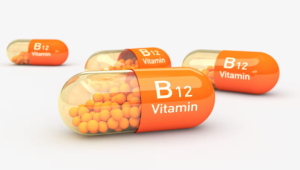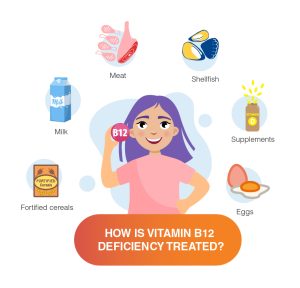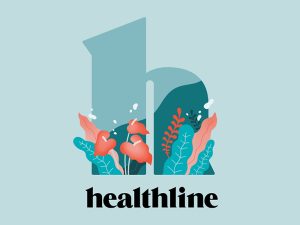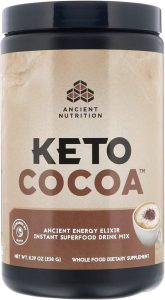Foods high in salt, such as canned foods, processed meats, and frozen dinners, should be avoided. These foods can contribute to health problems if consumed in excess.
Harmful Foods| Foods To Avoid| Hidden Sugars| Hidden Dangers| Impact Foods| Its Effects| Refined Grains| High Mercury| Ultra-palatable Foods| kin Health| Allergenic Foods| Diet Choices|
Additionally, sweetened canned fruit, commercially fried foods, energy drinks, refined-grain pretzels, artificial sweeteners, processed deli meats, and packaged muffins should also be limited or avoided due to their negative impact on overall health. Furthermore, diet soda, red meat, and processed and refined foods are not gut-friendly options and may increase the risk of diabetes and heart disease.
It is important to be mindful of the foods we consume and make healthier choices for the benefit of our well-being.
Understanding Harmful Foods
Avoid harmful foods that are high in salt, such as canned foods, processed meats, and frozen dinners. Opt for foods with less salt by checking the Nutrition Facts Label. Additionally, steer clear of unhealthy fats, sweeteners, and refined foods to maintain a healthy diet.
Exploring Why Certain Foods Impact Health Negatively
Understanding why certain foods have a negative impact on our health is crucial in making informed choices about what we consume. Some foods can be harmful due to their high levels of salt, unhealthy fats, sweeteners, or other additives. These substances can increase the risk of developing conditions like diabetes and heart disease.
Unhealthy Effects Of Foods High In Salt (sodium)
Foods that are high in salt, such as canned foods, processed meats (like lunch meats, sausages, hot dogs, and ham), and frozen dinners, should be avoided. Excessive salt consumption can lead to high blood pressure, which is a major risk factor for heart disease. Snack foods and store-bought packaged toddler foods should also be checked for their salt content.
The Impact Of Unhealthy Fats On Our Well-being
There are certain fats that are harmful to our health and should be limited or avoided entirely. Unhealthy fats can be found in foods like fried chicken, pork rinds, chicken-fried steak, and commercially fried foods. These foods contribute to high cholesterol levels, obesity, and an increased risk of heart disease. It is important to opt for healthier alternatives like lean proteins and natural sources of fat.
The Dangers Of Processed And Refined Foods
Processed and refined foods can be detrimental to our health due to their high sugar, salt, and unhealthy fat content. Foods like packaged muffins and refined-grain pretzels often contain artificial sweeteners, additives, and preservatives that are harmful to our bodies. These can lead to weight gain, inflammation, and an increased risk of chronic diseases such as diabetes and certain types of cancer. It is advisable to choose whole, unprocessed foods instead.
In conclusion, understanding the harmful effects of certain foods empowers us to make healthier choices that promote overall well-being. By avoiding or limiting foods high in salt, unhealthy fats, and artificial additives, we can reduce our risk of developing chronic diseases and improve our quality of life.
Foods To Avoid For Heart Health
When it comes to maintaining a healthy heart, it is crucial to pay attention to the foods we consume on a regular basis. Certain foods can pose a risk to heart health, contributing to conditions such as hypertension and cardiovascular diseases. In this section, we will discuss two types of foods that should be avoided for the sake of maintaining a healthy heart: high sodium options and trans fats.

High Sodium Options Causing Hypertension
Sodium is an essential mineral needed by the body in small amounts. However, consuming excessive amounts of sodium can lead to high blood pressure, also known as hypertension. This can significantly increase the risk of heart disease and stroke. Some common sources of high sodium include:
| Sources of High Sodium |
|---|
| Canned foods |
| Processed meats (e.g., lunch meats, sausages, hot dogs, ham) |
| Frozen dinners |
| Snack foods |
| Store-bought packaged toddler foods |
It is crucial to check the Nutrition Facts Label to identify foods with lower sodium content. By reducing the intake of high sodium options, you can positively impact your heart health and lower the risk of hypertension.
Trans Fats And Their Cardiovascular Risks
Trans fats, also known as trans fatty acids, are a type of unhealthy fat that increases the levels of bad cholesterol (LDL) and lowers the levels of good cholesterol (HDL) in the bloodstream. This unhealthy combination raises the risk of developing cardiovascular diseases. Foods that are high in trans fats should be avoided as much as possible. Some common sources of trans fats include:
- Fried foods
- Commercially-baked goods (e.g., packaged muffins)
- Processed deli meats
- Refined-grain pretzels
By limiting the consumption of foods high in trans fats, you can protect your heart health and reduce the risk of cardiovascular diseases.
It is important to note that a healthy diet focused on whole foods, fruits, vegetables, lean proteins, and healthy fats can significantly contribute to heart health. By avoiding high sodium options and trans fats, you can make positive changes to your diet and prioritize the well-being of your heart.
Hidden Sugars In Popular Diets
When it comes to maintaining a healthy diet, it’s essential to be mindful of the hidden sugars lurking in popular diets. Many individuals unknowingly consume excessive amounts of sugar through their diet, which can have detrimental effects on their health. Identifying deceptive sources of sugar and understanding the role of sugar in metabolic disorders are crucial steps towards making informed dietary choices to prevent potential health concerns.
Identifying Deceptive Sources Of Sugar
While we are aware that sugary treats like cookies and candies should be consumed in moderation, there are several other unexpected sources of hidden sugars that often go unnoticed. Food manufacturers often add sugar to enhance the taste and shelf life of their products. It’s important to carefully read food labels and ingredients lists to identify deceptive sources of sugar. Some common disguised names for sugar include:
- High-fructose corn syrup
- Dextrose
- Maltose
- Agave nectar
- Evaporated cane juice
- Fructose
By being aware of these alternative names, you can make more informed choices when selecting packaged foods and beverages, thereby reducing your overall sugar intake.
Sugar’s Role In Metabolic Disorders
The excessive consumption of added sugars has been linked to various metabolic disorders, including obesity, type 2 diabetes, and heart disease. When we consume sugary foods and drinks, our blood sugar levels rapidly spike, leading to an increase in insulin production. Over time, this constant overproduction of insulin can lead to insulin resistance, a condition in which your body becomes less responsive to the hormone’s effects. Insulin resistance is a primary risk factor for developing metabolic disorders.
Furthermore, high sugar intake can contribute to weight gain due to its high caloric content and limited nutritional value. Excessive weight gain, particularly around the abdomen, increases the risk of developing obesity-related health complications such as diabetes, high blood pressure, and cardiovascular disease. By reducing hidden sugars in our diets, we can improve our overall metabolic health and reduce the risk of developing these chronic conditions.
In conclusion, being knowledgeable about hidden sugars in popular diets is essential for maintaining a healthy lifestyle. By identifying deceptive sources of sugar and understanding the detrimental impact of excessive sugar consumption on metabolic health, we can make informed choices to protect our long-term well-being. So, next time you reach for that snack or packaged food, take a moment to read the labels and make a conscious decision to limit your sugar intake.
Artificial Sweeteners’ Hidden Dangers
Artificial sweeteners can be hidden dangers in certain food products that should be avoided. These sweeteners can potentially disrupt gut health, increase the risk of diabetes and heart disease, and negatively impact overall well-being.
Debunking Healthy Alternative Myths
Artificial sweeteners are often hailed as the go-to solution for those looking to cut down on their sugar intake and maintain a healthy lifestyle. However, the hidden dangers associated with artificial sweeteners cannot be ignored. Contrary to popular belief, these so-called “healthy alternatives” come with their own set of risks and drawbacks.
One common misconception is that artificial sweeteners are a better option for weight management. Many people believe that by substituting sugar with artificial sweeteners, they can indulge in their favorite sweet treats without the guilt. Unfortunately, the reality is quite different.
Correlation With Weight Gain And Cravings
Studies have shown that artificial sweeteners can actually lead to weight gain instead of weight loss. The reason behind this counterintuitive effect lies in the way our bodies respond to these sugar substitutes. When we consume artificial sweeteners, our brain expects a caloric response similar to that of real sugar. However, since artificial sweeteners are calorie-free, our brain is left unsatisfied and craving for more sweet foods. This can potentially lead to overeating and weight gain in the long run.
Furthermore, artificial sweeteners may intensify our cravings for sugary foods. When we consume these sweeteners, our taste buds are tricked into expecting a high level of sweetness. As a result, we may find ourselves constantly seeking out more sugary foods to satisfy our cravings. This can create a vicious cycle of sugar addiction and make it even harder to make healthier dietary choices.
To make matters worse, the long-term effects of artificial sweeteners on our health are still largely unknown. Some studies suggest that these sweeteners may disrupt the balance of gut bacteria, which plays a crucial role in digestion and overall health. This disruption has been linked to various health issues, including an increased risk of diabetes and heart disease.
It’s important to be critical of the claims made about artificial sweeteners and to understand that they are not a magic solution for a healthy diet. Instead of relying on artificial sweeteners, it’s best to focus on reducing overall sugar intake by opting for natural sweeteners in moderation, such as honey or maple syrup. Remember, when it comes to our health, it’s always better to choose whole, unprocessed foods over artificial alternatives.
Impact Of Processed Foods
Processed foods have become a staple in modern diets due to their convenience and widespread availability. However, these foods often come at a cost to our health.
Defining What Constitutes A Processed Food
Before we delve into the health problems associated with processed food consumption, let’s first define what constitutes a processed food. Processed foods are any foods that have undergone significant changes from their natural state through various methods such as cooking, canning, freezing, or adding preservatives. These foods typically come in packages, have a long shelf life, and are ready to eat or require minimal cooking. Examples of processed foods include canned soups, frozen meals, snack bars, and sodas.
Health Problems Linked To Processed Food Consumption
The consumption of processed foods has been linked to a wide range of health problems, some of which include:
- Obesity: Processed foods are often high in calories, unhealthy fats, added sugars, and sodium, all of which contribute to weight gain and obesity.
- Cardiovascular diseases: Regularly consuming processed foods has been associated with an increased risk of heart diseases, such as high blood pressure, heart attacks, and stroke. These foods are often high in unhealthy fats, cholesterol, and sodium.
- Diabetes: Processed foods, particularly those high in refined carbohydrates and added sugars, can contribute to the development of type 2 diabetes. These foods cause rapid spikes in blood sugar levels and contribute to insulin resistance over time.
- Digestive issues: Many processed foods lack dietary fiber, which is crucial for maintaining a healthy digestive system. This can lead to constipation, bloating, and other gastrointestinal problems.
- Reduced nutrient intake: Processing often strips foods of their natural nutrients. The excessive cooking, canning, and freezing methods employed in the production of processed foods can deplete vitamins, minerals, and antioxidants.
These are just a few examples of the negative impact that processed foods can have on our health. It is essential to prioritize whole, unprocessed foods in our diets to maintain optimal health and well-being.
Excessive Caffeine And Its Effects
Excessive caffeine consumption has become a common habit for many people, especially those who rely on it to kickstart their day or stay awake longer. However, it’s important to understand that consuming too much caffeine can have negative effects on both our physical and mental health. In this section, we will delve into the understanding of safe vs. harmful amounts of caffeine and its relationship with sleep disorders.
Understanding Safe Vs. Harmful Amounts
When it comes to caffeine consumption, knowing the safe limits is crucial. The generally recommended maximum daily caffeine intake for healthy adults is around 400 mg, which is equivalent to about four cups of coffee. However, individual sensitivity to caffeine can vary, with some people experiencing adverse effects even with lower amounts. It’s essential to be aware of your own tolerance level and adjust your intake accordingly.
Below is a table summarizing the caffeine content in common beverages:
| Beverage | Caffeine Content (mg) |
|---|---|
| Coffee (8 oz) | 95-200 |
| Tea (8 oz) | 14-60 |
| Energy Drinks (8 oz) | 70-200 |
| Soda (12 oz) | 30-70 |
The Relationship Between Caffeine And Sleep Disorders
Excessive caffeine consumption can disrupt your sleep patterns, leading to sleep disorders such as insomnia. By stimulating the central nervous system, caffeine can make it harder for you to fall asleep and stay asleep. Its effects can last for several hours, prolonging the time it takes for your body to wind down and enter a restful state.
Furthermore, the quality of sleep may be compromised even if you manage to fall asleep after consuming excessive amounts of caffeine. This can result in feeling groggy and fatigued the next day, affecting your overall productivity and well-being. It’s vital to be mindful of the timing of caffeine intake and consider cutting back if you’re struggling with sleep-related issues.
It’s important to remember that moderation is key when it comes to caffeine consumption. While a moderate amount can provide a temporary energy boost, excessive intake can lead to negative consequences. Be aware of your caffeine limits, pay attention to the signs your body gives you, and make informed choices to maintain a healthy lifestyle.
Whole Vs. Refined Grains
When it comes to maintaining a healthy diet, it is important to be mindful of the foods we consume. Certain foods, when consumed in excess, can lead to various health complications. One such category of foods is grains.
The Nutritional Differences Explained
Grains are an essential part of a balanced diet, providing carbohydrates, fiber, and essential nutrients. However, not all grains are created equal. The main distinction lies in the processing method, which categorizes grains into two types: whole grains and refined grains.
Whole grains, as the name suggests, are grains that retain all parts of the seed – the bran, germ, and endosperm. This means that they contain all the natural nutrients and fiber present in the unprocessed grain. In contrast, refined grains undergo processing, where the bran and germ are removed, leaving only the starchy endosperm.
The removal of the bran and germ in refined grains leads to a loss of fiber, vitamins, minerals, and other beneficial compounds. This crucial difference in processing results in significant variations in nutritional content between the two types of grains.
Let’s take a closer look at the nutritional differences between whole grains and refined grains:
| Nutrient | Whole Grains | Refined Grains |
|---|---|---|
| Dietary Fiber | High | Low |
| Vitamins | Rich | Reduced |
| Minerals | Abundant | Diminished |
| Antioxidants | Present | Often reduced |
Chronic Diseases Linked To Refined Grain Intake
The consumption of refined grains has been associated with various chronic diseases. When included as a significant portion of one’s diet, refined grains can contribute to an increased risk of:
- Obesity
- Type 2 diabetes
- Heart disease
- High blood pressure
- High cholesterol levels
The refined grains found in common processed foods can cause spikes in blood sugar levels, leading to insulin resistance and the development of type 2 diabetes. Additionally, the lack of fiber in refined grains can disrupt healthy digestion and contribute to weight gain.
It is important to note that not all grain products labeled as “whole grain” are truly whole. Carefully reading labels and opting for products with minimal processing is essential to ensure you are consuming the most nutritious options.
In conclusion, choosing whole grains over refined grains can significantly improve your dietary intake and reduce the risk of chronic diseases. By making simple swaps in your diet, such as selecting whole wheat bread over white bread or brown rice over white rice, you can promote better overall health and well-being.
High Mercury Fish To Steer Clear Of
In order to maintain a healthy diet, it’s important to be aware of the foods that should be avoided. One category of foods that pose a potential risk to our health is high mercury fish. Mercury is a heavy metal that can accumulate in the bodies of fish and ultimately find its way into our own bodies when we consume these fish. To minimize our exposure to mercury poisoning, it’s crucial to steer clear of fish with high mercury content.
Identifying Fish High In Mercury Content
When it comes to identifying fish that are high in mercury content, it’s essential to know which species are more likely to have elevated mercury levels. Some of the commonly known high mercury fish include:
- Swordfish
- Shark
- King mackerel
- Tilefish
These fish tend to be larger and are higher up in the food chain, which means they have had more time to accumulate mercury from their prey. It’s important to note, however, that mercury levels can vary depending on the location and feeding habits of the fish, so it’s always a good idea to stay informed by checking local advisories or consulting with seafood experts.
Health Implications Of Mercury Poisoning
Mercury poisoning can have significant health implications, especially when consumed in high amounts over a long period of time. When mercury makes its way into our bodies, it can damage various organs and systems, including the nervous system, brain, kidneys, and cardiovascular system.
Exposure to high levels of mercury can lead to symptoms such as:
- Impaired cognitive function
- Memory problems
- Nervousness and irritability
- Tremors
- Weakness and muscle fatigue
- Difficulty with coordination and balance
Pregnant women and young children are especially vulnerable to the effects of mercury poisoning, as it can interfere with the development of the fetal brain and nervous system. Therefore, it’s crucial for these individuals to avoid high mercury fish and opt for safer alternatives instead.
The Downside Of Ultra-palatable Foods
Ultra-palatable foods, with their enticing flavors and textures, have become increasingly abundant in our modern diet. While they may provide immediate satisfaction to our taste buds, consuming these foods regularly can have some negative consequences. In this section, we will explore the downsides of ultra-palatable foods and their impact on overeating and psychological well-being.
How Overstimulation Of Taste Buds Leads To Overeating
Overstimulation of taste buds is a common consequence of consuming ultra-palatable foods. These foods are often engineered to have a combination of high levels of fat, sugar, and salt, which creates a tantalizing sensation on our tongues.
When we consume these foods, our taste buds become overwhelmed with pleasure, triggering a release of dopamine in the brain. This dopamine rush reinforces the pleasurable experience of eating, making it difficult to resist the urge to indulge further. As a result, we may find ourselves overeating, even when we’re no longer hungry.
This overstimulation of taste buds can disrupt our body’s natural cues for hunger and satiety, leading to weight gain and a higher risk of developing chronic health conditions such as obesity and type 2 diabetes.
The Psychological Impact Of Ultra-palatable Foods
Besides their physical impact, ultra-palatable foods can also have a significant psychological impact. The intense pleasure we experience from consuming these foods can create a psychological dependence on them.
When we rely on ultra-palatable foods for emotional comfort or stress relief, we can develop unhealthy coping mechanisms and a distorted relationship with food. These foods may temporarily alleviate negative emotions, but they fail to address the underlying issues at hand. As a result, we may find ourselves trapped in a cycle of emotional eating, seeking solace in ultra-palatable foods instead of addressing our emotional well-being.
This psychological dependence on ultra-palatable foods can lead to a variety of negative outcomes, including weight gain, decreased self-esteem, and an increased risk of developing disordered eating habits.
To maintain a balanced and nutritious diet, it’s essential to be mindful of the downsides of ultra-palatable foods. While it’s okay to enjoy these foods in moderation, prioritizing whole, unprocessed foods can help support our physical and mental well-being in the long run.
Foods That Should Be Avoided For Skin Health
Your diet plays a crucial role in maintaining healthy skin. Certain foods can trigger inflammatory skin conditions, leading to acne breakouts, eczema flare-ups, and overall poor skin health. To achieve a radiant complexion, it is crucial to identify and avoid these skin-aggravating foods.
Foods That Exacerbate Inflammatory Skin Conditions
Inflammatory skin conditions can be worsened by the consumption of certain foods. These foods can trigger an immune response in the body, leading to the production of inflammatory molecules that affect the skin. If you struggle with inflammatory skin conditions, consider avoiding the following:
- Fried foods: Fried foods are typically cooked in unhealthy oils that contribute to inflammation. Consuming fried foods regularly can lead to clogged pores and increased sebum production, exacerbating acne and other skin conditions.
- Dairy products: Dairy products, such as milk and cheese, contain hormones that can disrupt the balance of the skin. Studies have shown a correlation between dairy consumption and acne severity. Consider opting for plant-based alternatives to dairy.
- Sugar and refined carbohydrates: Foods high in sugar and refined carbohydrates, such as white bread, pastries, and soda, can cause spikes in insulin levels. These spikes can lead to increased sebum production and inflammation, making the skin more prone to breakouts.
- Processed meats: Processed meats, including sausages, hot dogs, and deli meats, often contain additives and preservatives that can trigger inflammation in the body. These inflammatory responses can manifest on the skin, contributing to skin conditions such as rosacea or eczema.
By avoiding these foods and making healthier choices, you can significantly improve your skin’s health and reduce the likelihood of experiencing inflammatory skin conditions.
H3: Diet changes for improved skin texture and health
While avoiding specific foods is essential for skin health, incorporating certain foods into your diet can also promote better skin texture and overall health. Consider the following diet changes:
- Omega-3 fatty acids: Foods rich in omega-3 fatty acids, such as salmon, walnuts, and chia seeds, have anti-inflammatory properties that can benefit the skin. These fatty acids help maintain the skin’s moisture barrier, preventing dryness and promoting a healthy glow.
- Colorful fruits and vegetables: The vibrant colors of fruits and vegetables indicate their rich nutrient content. Incorporating a variety of colorful produce into your diet ensures you are consuming essential vitamins, minerals, and antioxidants that nourish the skin and protect against oxidative stress.
- Probiotic-rich foods: Probiotics promote a healthy gut microbiome, which is closely linked to skin health. Foods like yogurt, kimchi, and sauerkraut contain beneficial bacteria that support a balanced gut, leading to improved skin clarity and reduced inflammation.
- Hydration: Drinking an adequate amount of water is crucial for skin health. Staying hydrated helps maintain proper skin moisture and promotes detoxification, leading to a more radiant complexion.
By making these diet changes and incorporating skin-friendly foods, you can support your skin’s health from within. Remember, good nutrition is a vital component of a comprehensive skincare routine.
Recognizing Allergenic Foods
Foods high in salt, such as canned foods and processed meats, should be avoided. Additionally, it is important to steer clear of unhealthy fats, sweeteners, and refined foods to maintain a healthy diet.
Allergies to certain foods can cause discomfort, ranging from mild symptoms such as itchiness or a runny nose to severe reactions like anaphylaxis. Therefore, it is crucial to be able to recognize and avoid allergenic foods to ensure your well-being. The following section will guide you on common foods with high allergenic potential and steps to identify and eliminate allergens from your diet, promoting a safer and healthier lifestyle.
Common Foods With High Allergenic Potential
When it comes to recognizing allergenic foods, it is important to be aware of common culprits that can trigger allergic reactions. Here are some examples:
- Cow’s milk
- Wheat and wheat-based products
- Eggs
- Soy
- Shellfish
- Fish
- Tree nuts (such as almonds, walnuts, and cashews)
- Peanuts
These foods contain proteins that have the potential to cause allergic reactions in susceptible individuals. However, it is important to note that food allergies can vary from person to person, and some individuals may be allergic to other foods not listed above.
Steps To Identify And Eliminate Allergens From Your Diet
If you suspect you have a food allergy or need to eliminate certain allergens from your diet, follow these steps:
- Consult with a healthcare professional, such as an allergist or registered dietitian, to determine the specific allergens you need to avoid.
- Keep a food diary, noting any symptoms or reactions after consuming certain foods. This can help identify potential allergens.
- Understand food labels and ingredients lists to identify hidden allergens. Common allergens are often listed in bold or italicized text.
- Gradually eliminate suspected allergens from your diet, under the guidance of a healthcare professional, to determine if symptoms improve.
- Consider allergy testing, such as skin prick tests or blood tests, for a more accurate diagnosis of specific food allergies.
- Find suitable alternatives or substitutes for allergenic foods to ensure a balanced diet, while still meeting your nutritional needs.
- Keep in mind that cross-contamination can occur, especially in shared kitchens or when dining out. It is essential to communicate your dietary restrictions to food establishments and thoroughly clean cooking utensils and surfaces to prevent accidental exposure to allergens.
By following these steps, you can proactively manage and eliminate allergenic foods from your diet, promoting a safer and healthier lifestyle.
Balance Is Key In Diet Choices
When it comes to maintaining a healthy lifestyle, balance is the utmost importance. It’s not about completely cutting out certain foods from your diet, but rather about making informed choices and finding a healthy balance. Emphasizing variety and moderation in your meals is essential to ensure you are getting the necessary nutrients while avoiding harmful foods.
Emphasizing Variety And Moderation
When it comes to diet choices, variety is key. Incorporating a wide range of foods ensures that you are getting a diverse range of vitamins, minerals, and nutrients necessary for optimal health. Include different fruits, vegetables, whole grains, lean proteins, and healthy fats in your meals to ensure you are covering all your nutritional bases.
However, moderation is also crucial. While no food should be completely off-limits, it’s important to enjoy foods in moderation especially those that are high in salt, unhealthy fats, or added sugars. This way, you can still satisfy your cravings without compromising your health.
Strategies To Avoid Harmful Foods While Enjoying Meals
There are several strategies you can implement to avoid harmful foods while still enjoying your meals:
- Read Nutrition Facts Labels: Take the time to read the nutrition facts labels on packaged foods. Look out for high levels of salt, unhealthy fats, and added sugars. Opt for options with lower amounts of these ingredients.
- Choose Fresh and Whole Foods: Instead of relying on processed or packaged foods, focus on fresh and whole foods. Fruits, vegetables, lean proteins, and whole grains are great choices that are rich in nutrients and low in harmful additives.
- Cook at Home: Cooking meals at home allows you to have full control over the ingredients and cooking methods. By avoiding deep-frying or excessive use of salt, you can create healthier versions of your favorite dishes.
- Be Mindful of Portion Sizes: Portion control is important to avoid overeating. Use smaller plates, bowls, and utensils to help regulate your serving sizes and prevent mindless eating.
By implementing these strategies, you can make healthier choices and avoid harmful foods while still enjoying your meals. Remember, balance is the key to a sustainable and nourishing diet.
Frequently Asked Questions For Foods That Should Be Avoided
What Are 10 Foods You Should Avoid?
Avoid these 10 foods for a healthier diet: Foods high in salt (e. g. , canned foods, processed meats, frozen dinners), sugary beverages, sweetened canned fruit, commercially fried foods, energy drinks, refined-grain pretzels, artificial sweeteners, processed deli meats, packaged muffins.
Diet soda, red meat, and processed/refined foods are also not good for your health.
What Are The 10 Most Unhealthy Foods?
The 10 most unhealthy foods to avoid include: fried chicken, sweetened canned fruit, commercially fried foods, energy drinks, refined-grain pretzels, artificial sweeteners, processed deli meats, packaged muffins, diet soda, and red meat. These foods are high in unhealthy fats, sugar, salt, and artificial ingredients.
What Are The 25 Unhealthy Foods?
The 25 unhealthy foods to avoid include high-salt canned foods, processed meats, frozen dinners, sugary snacks, soft drinks, refined foods, saturated and trans fats, excess animal protein, and foods with added sugars. Other unhealthy options are fried foods, energy drinks, pretzels, artificial sweeteners, deli meats, packaged muffins, diet soda, red meat, and processed and refined foods.
These foods can raise the risk of diabetes and heart disease.
What Are The 3 Foods To Quit?
The top 3 foods to quit are high-salt foods, processed meats, and refined foods. Avoiding these foods can lower the risk of diabetes and heart disease.
Conclusion
To maintain a healthy lifestyle, it is important to know which foods to avoid. Foods high in salt, such as canned foods, processed meats, and frozen dinners, should be eliminated from your diet. Additionally, it is best to steer clear of unhealthy fats, sweeteners, refined grains, and artificial sweeteners.
Reducing consumption of diet soda, red meat, and processed and refined foods can also improve your overall well-being. By making conscious choices and opting for healthier alternatives, you can take control of your diet and improve your overall health.











Be First to Comment